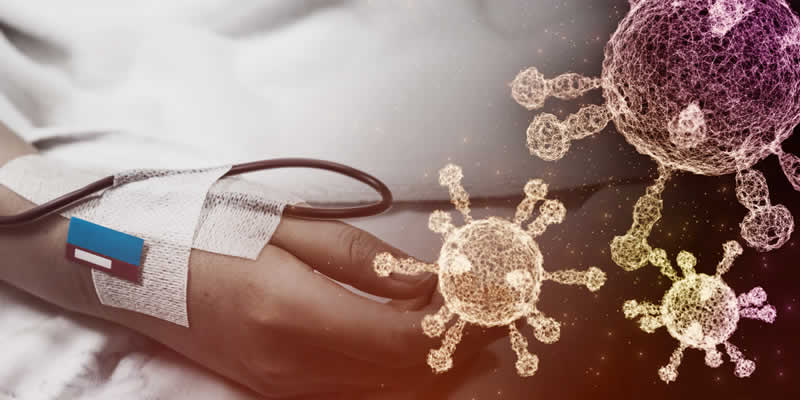Individuals who have previously been infected with the coronavirus are at risk of developing self-attacking antibodies, new research shows.
Scientists from Cedars-Sinai Medical Center in Los Angeles have revealed that people produce multiple autoantibodies after they have been infected with COVID-19, with these proteins remaining in the immune system for up to six months.
Normally, antibodies combat harmful material trying to enter cells; however, the study has reported that autoantibodies can damage vital organs and tissues in the body.
Prior research has found that autoantibodies are developed during severe COVID-19 cases, but this is the first report to reveal that autoantibodies are present in those with less severe symptoms and that they survive for several months after the initial infection.
- Overweight people at higher risk of mortality and ‘lengthy’ ICU admission if infected with COVID-19, evidence reveals
- Unvaccinated children had a 2.7% higher chance of catching COVID compared to double-jabbed in Pfizer US trial
Lead author Dr Justyna Fert-Bober said: “These findings help to explain what makes COVID-19 an especially unique disease.
“These patterns of immune dysregulation could be underlying the different types of persistent symptoms we see in people who go on to develop the condition now referred to as long COVID-19.”
During the trial, the scientists assessed blood samples of 177 people who had all previously been infected with the coronavirus, and compared them to blood tests from participants who have not been infected.
They found that autoantibody levels were high amongst all the participants who had once tested positive for COVID-19.
Additionally, participants with lupus and rheumatoid arthritis also had lots of autoantibodies in their immune system.
Chief author Dr Susan Cheng said: “We found signals of autoantibody activity that are usually linked to chronic inflammation and injury involving specific organ systems and tissues such as the joints, skin and nervous system.”
According to the findings, the number of autoantibodies were higher amongst the male participants than the female participants.
- COVID-19 can cause diabetes, experts find
- Drug used to treat type 2 diabetes could reduce risk of severe COVID-19 outcomes, research suggests
Dr Justyna Fert-Bober said: “On the one hand, this finding is paradoxical given that autoimmune conditions are usually more common in females.
“On the other hand, it is also somewhat expected given all that we know about males being more vulnerable to the most severe forms of COVID-19.”
With Long COVID cases now rising, the team of academics want to carry on researching the relationship between autoantibodies and the coronavirus.
“If we can better understand these autoantibody responses, and how it is that SARS-CoV-2 infection triggers and drives these variable responses, then we can get one step closer to identifying ways to treat and even prevent these effects from developing in people at risk,” said Dr Cheng.
The study has been published in Journal of Translational Medicine.









